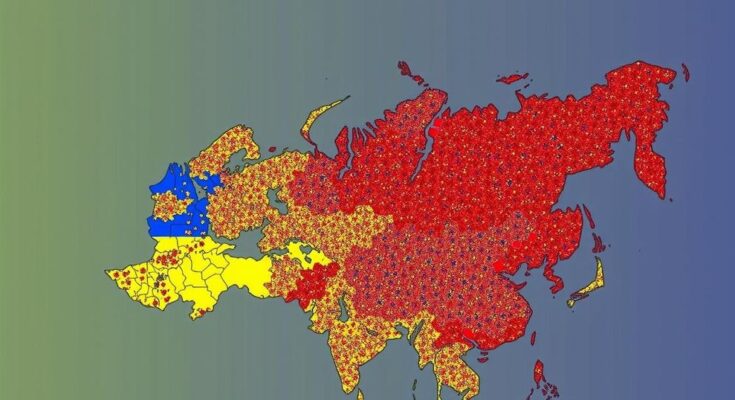Moldova formally protests to Russia over alleged electoral interference and drone violations. The Moldovan government accuses Moscow of undermining democracy and engaging in manipulative practices during recent elections. Tensions have escalated as Moldova aligns more closely with the EU, further complicating its relationship with Russia, which denies these allegations.
Moldova has lodged a formal protest with Russia regarding alleged interference in its electoral process. The Moldovan Foreign Ministry submitted a “note of firm protest” to Russian ambassador Oleg Ozerov, accusing Moscow of “illegal and deliberate interference” during the recent presidential election and a referendum aimed at seeking European Union membership. The Ministry claims that Russia’s actions included coordinating ineligible voting practices, bribery, and threats to national security to manipulate election outcomes. In light of this, Moldova’s leadership described the Russian activities as detrimental to its democracy, especially following the narrow victory of pro-Western President Maia Sandu, who garnered substantial support from Moldovans residing abroad. In addition to electoral meddling, Moldova condemned the recent violation of its airspace by what it termed two alleged Russian drones, which were reportedly launched during a Russian drone attack on Ukraine. The Foreign Ministry firmly stated, “The competent institutions of our country possess clear information indicating that the drones were launched by the Russian Federation.” Ambassador Ozerov refuted these claims, arguing that the meeting was based on mutual agreement and asserting that no evidence linked the drones to Russia.\n\nThe increasing alignment of Moldova with Western nations, following its historical ties to the Soviet Union, has fostered tensions with Russia. This shift has escalated suspicions of Russian attempts to undermine Moldova’s democratic governance and progress toward EU integration. The European Union and the United States have expressed their support for Moldova’s assertions regarding external interference in its elections. The allegations of voter manipulation and drone crossings display the precarious geopolitical situation between Russia and Moldova, highlighting the broader implications of regional security dynamics.
Moldova, a former Soviet republic, has been navigating a complex political landscape marked by a struggle between pro-European Union aspirations and historical ties to Russia. The country’s recent elections, which were tightly contested, have unfolded against a backdrop of accusations of foreign interference, primarily attributed to Russian actions. This situation reflects a broader regional trend where Russia is perceived to be attempting to exert influence in post-Soviet states. Moldova’s government has expressed a strong commitment to EU integration, which has compounded tensions with Moscow and raised concerns over the integrity of its democratic processes.
In conclusion, Moldova’s formal protest to Russia highlights significant concerns regarding alleged electoral interference and national security violations. The accusations of Russian involvement in undermining democratic processes resonate within the broader context of Moldova’s geopolitical realignment toward the West. This situation underscores the ongoing tensions between Moldova and Russia as well as the implications for regional security and democracy in post-Soviet states. The international community, particularly the EU and the US, continues to support Moldova’s efforts toward democratic integrity and sovereignty.
Original Source: www.aljazeera.com




